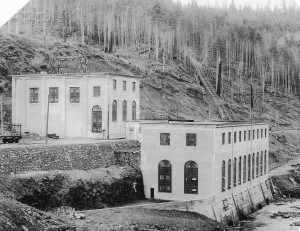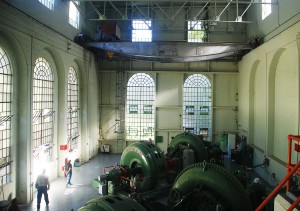 The historic Bull Run Power Plant was saved today following a Land Use Board of Appeals ruling that will enable the adaptive reuse of rural historic resources across Oregon for years to come. Restore Oregon invested significant time and resources in filing a brief and arguing before the court in support of the preservation-friendly land use policies central to the case. Today’s ruling amounts to one of the most significant legal victories in the history of Oregon’s preservation movement.
The historic Bull Run Power Plant was saved today following a Land Use Board of Appeals ruling that will enable the adaptive reuse of rural historic resources across Oregon for years to come. Restore Oregon invested significant time and resources in filing a brief and arguing before the court in support of the preservation-friendly land use policies central to the case. Today’s ruling amounts to one of the most significant legal victories in the history of Oregon’s preservation movement.
The case, King v Clackamas County, concerned a proposal to remove highly-restrictive zoning from a collection of vacant historic landmarks to enable their adaptive reuse; a plan that will generate the funds necessary to provide for a future for the structures. Despite the Clackamas County Board of Commissioners approving the requested zone change in 2014, the Land Use Board of Appeals took up a review of the case due to policy and procedural concerns. During the deliberations, a group of local residents petitioned the court to reverse the County’s decision; however, the court ultimately decided to uphold the zone change after reviewing arguments made by Restore Oregon and owners of the landmark buildings.

a decision that will permit an art gallery, studios, classroom, and
other new uses to take place in the now-vacant landmark.
In upholding Clackamas County’s decision to rezone the historic landmarks, the Land Use Board of Appeals has opened a new door to finding solutions for many of the state’s vacant, functionally obsolete, and deteriorating historic resources. Because of the highly restrictive nature of the state’s exclusive farm and forest zones, scores of rural churches, mills, and schools have not been afforded the flexibility that has enabled the creative preservation seen in many of Oregon’s urban areas. In the court’s opinion, “If a historic structure has no use supporting its maintenance, it is likely that the landowner will allow the structure to deteriorate, which is not consistent with the goal of conserving historic resources.”
Today’s ruling makes possible, for the first time in forty years, the ability to adaptively reuse some of Oregon’s most significant rural landmarks.
Special thanks are owed to the owners of the Bull Run Power Plant and Restore Oregon’s legal counsel, Carrie Richter of Garvey Schubert Barer, for assisting Restore Oregon staff and securing representation at oral arguments.


Way to go Restore Oregon!
It’s a great day for historic preservation in Oregon.
Congratulations to all!
Good work team! What a beautiful building!